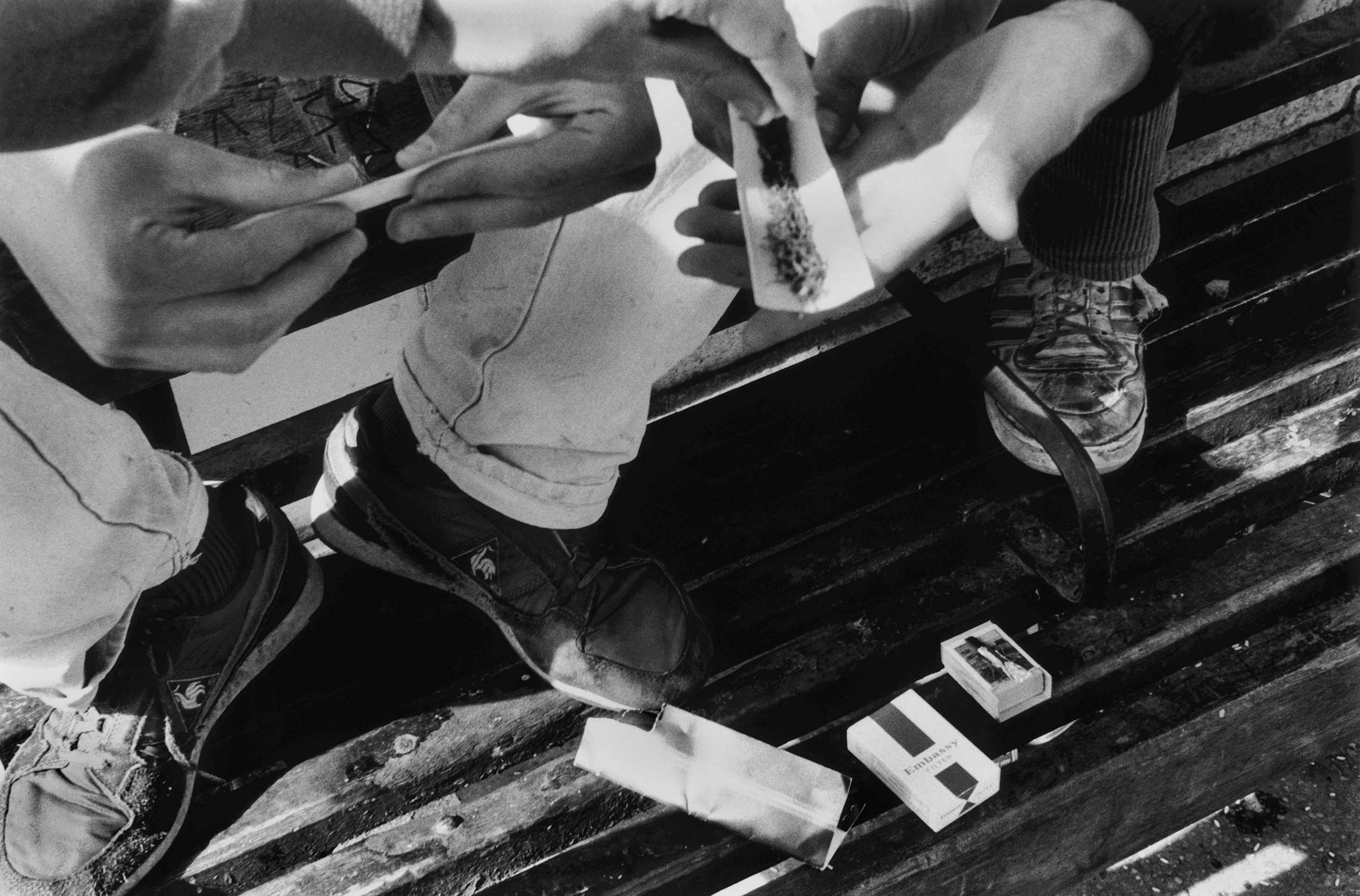While state-wide legalization of weed seems inevitable, recent announcements on drug enforcement policies by Governor Andrew Cuomo and Mayor Bill de Blasio are as tepid as they come.
New York is taking wobbly steps towards something like the legalization of marijuana. At a press conference this Tuesday, Mayor Bill de Blasio announced baby steps towards reforming the city’s approach to policing the drug. Effective September 1, the New York Police Department will only issue tickets to those caught in possession of the substance, with a few major caveats. If you’ve been arrested in connection with a violent crime in the last three years, are on probation or parole or have an open arrest warrant, or are deemed to be a “threat to the public”—the relaxed laws won’t apply and you’ll still find yourself in handcuffs.
There is, in other words, a strong likelihood the same biased policing will continue with regards to low-level drug offenses: a slap on the wrist for some, jail for the rest. In the city, there is already a well-documented history of the NYPD enforcing drug law unequally between white and black communities. Black New Yorkers, for instance, are eight times more likely to be arrested for marijuana-related offenses, despite being an equal rate of consumers as whites. The latest piece-meal approach taken by the police department does little to eradicate the issues at large.
Statewide, it’s been a slow journey for Governor Andrew Cuomo’s and health officials to reach this point of looming legalization. Back in January, Cuomo began laying the groundwork for this political 180 by commissioning a report to examine the state’s approach to marijuana regulation. At the time, Cuomo was more tepid about the possibility of New York going green. But thanks to a number of factors, including a competitive challenge to his governorship by actress Cynthia Nixon, Cuomo’s tune has changed since then. Added to that, the state health commissioner, Dr. Howard Zucker, announced on Monday that he will recommend to the state that marijuana be legalized. “We looked at the pros, we looked at the cons, and when we were done, we realized that the pros outweighed the cons,” Dr. Zucker said to the Times. “We have new facts.”
It remains unclear if these new facts are scientific in nature or simply political. Nixon’s campaign, which has made legal pot a central campaign promise, was quick to take the announcement as a further sign of Cuomo’s political expediency. “It shouldn’t have taken Cuomo eight years and a challenge from Ms. Nixon ‘to understand the ‘facts have changed,’” Nixon’s spokesperson Lauren Hitt said in response.
Meanwhile, looking across the border, Canada is poised to become the first developed nation to make possession, home growing, and sales legal for adults. The nation’s senate passed a measure to decriminalize marijuana by a margin of 52 – 29. Canada would be only the second nation in the world to fully decriminalize the drug. Prime Minister Justin Trudeau’s Liberal Party released a statement on their website saying “Canada’s current system of marijuana prohibition does not work.” Unlike New York City’s confused march towards full legality, Canada’s framework will be quite clear cut: adults over 18 will be permitted to carry as much as 30 grams of marijuana in public and cultivate up to four plants in their homes.







